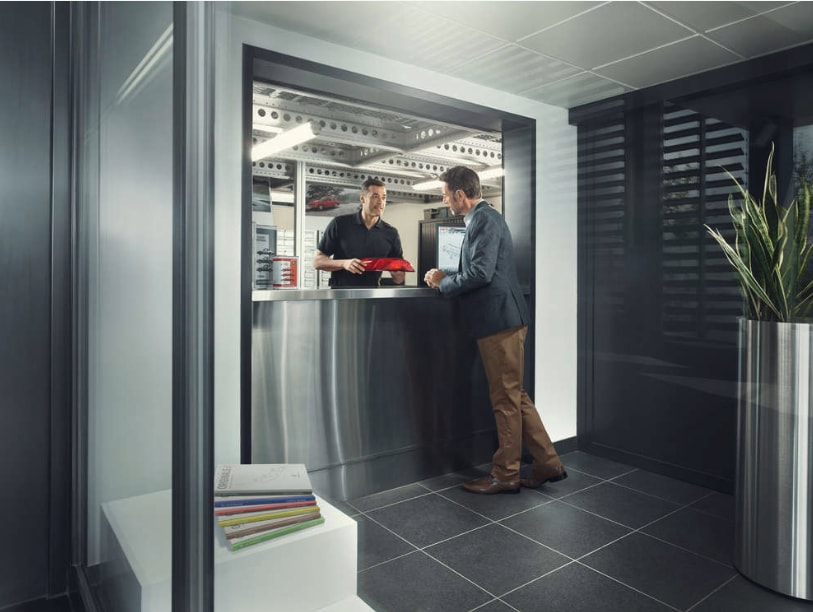
Maintain the Life of Your Porsche with Proper Battery Maintenance
Owning a Porsche means committing to performance—and that includes proper battery care. Porsche recommends driving 3,000–5,000 miles per year to keep your battery healthy. Infrequent use can lead to drain, sulfation, and costly repairs. Drive regularly, use a maintainer if parked, and schedule routine checks. Need help? Visit the Porsche Service Center here at McDaniels Porsche in Columbia, SC for expert diagnostics and battery care—because every part deserves precision.
Why Battery Maintenance is Crucial for Porsche Owners
Your Porsche's battery does more than just start the engine. It powers advanced systems like keyless entry, navigation, adaptive suspension, and other technology-driven features. For hybrid and electric models, the battery is even more central, powering everything from propulsion to regenerative braking systems.
Unlike standard vehicles, Porsches often have specialized batteries tailored for high-performance demands. These batteries are built for endurance, but they still require regular care to maintain peak efficiency.
How Much Should You Drive to Keep the Battery Healthy?
Porsche recommends driving your vehicle at least 3,000 to 5,000 miles per year to keep the battery in optimal condition. That averages out to around 60 to 100 miles per week. Consistent use ensures that the alternator charges the battery regularly and prevents it from becoming discharged or sulfated (a common issue with batteries left idle).
If your Porsche sits in the garage more than it hits the road, you're not just missing out on the driving experience—you could be shortening your battery's life.
Risks of an Underused or Poorly Maintained Battery
Letting your Porsche sit for long periods without proper battery care can lead to several issues:
-
Battery Drain: Modern Porsches include many systems that draw a small current even when the car is off—alarm systems, sensors, and remote functions, for example. Over time, this can drain the battery.
-
Battery Sulfation: This occurs when lead sulfate crystals build up on the battery plates due to infrequent charging. Sulfation reduces battery capacity and can lead to premature failure.
-
Faulty Electrical Systems: A weak or failing battery can cause error messages, glitches in electronics, and unreliable starts—especially frustrating in a premium vehicle like a Porsche.
-
Increased Repair Costs: A neglected battery can cause strain on the alternator or other electrical components, leading to costly repairs that could’ve been avoided with simple maintenance.
Tips for Optimal Battery Care
-
Drive Regularly: Even short drives of 20–30 minutes once a week help keep the battery charged and the electrical system in good health.
-
Use a Battery Maintainer: If you plan to store your Porsche or won’t drive it regularly, invest in a Porsche-approved battery maintainer. These smart chargers keep the battery topped off without overcharging, making them ideal for seasonal vehicles or collectors.
-
Schedule Routine Checks: During regular service intervals, have your battery’s voltage and health tested. This is especially important before long trips or before winter weather hits.
-
Watch for Warning Signs: Slow engine cranking, dashboard warning lights, or inconsistent electronics can all signal battery trouble. Don’t ignore them.
-
Replace When Needed: Most Porsche batteries last 4 to 6 years, depending on driving habits and climate. Replacing the battery on time ensures continued performance and reliability.
The Bottom Line
The battery may not be the flashiest part of your Porsche, but it’s one of the most essential. Regular driving—around 3,000 to 5,000 miles a year—combined with proactive maintenance can extend your battery’s lifespan and protect your Porsche’s advanced systems.
If you're unsure about your battery’s health or your driving habits don't meet the annual mileage recommendations, stop by McDaniels Porsche. Our factory-trained technicians can perform a battery diagnostic, recommend a proper maintainer, or help you schedule regular service to keep your Porsche ready to perform whenever you are. Schedule Porsche service online today.
Because when you own a Porsche, every part—no matter how small—deserves precision care.